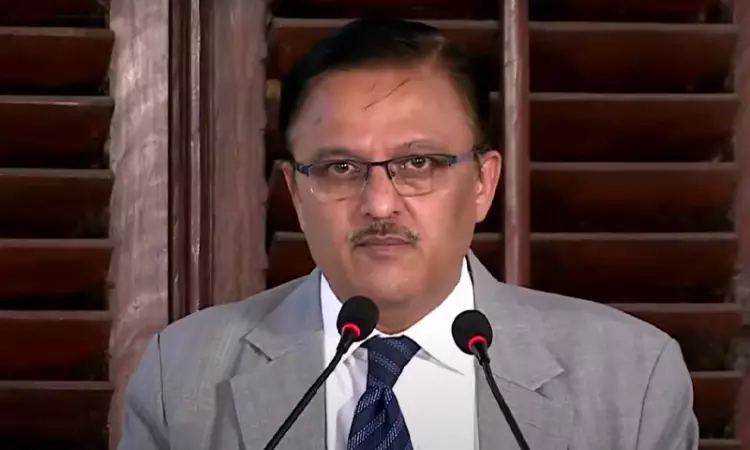
SC is Chief Justice-centric, needs to change: Justice Abhay S. Oka
text_fieldsNew Delhi: Supreme Court judge Justice Abhay S. Oka, delivering his farewell speech at an event organised by the Supreme Court Bar Association on Friday, highlighted the need for reform in the apex court’s functioning, describing it as currently Chief Justice-centric. He emphasised that this structure requires change to better reflect the diversity of the Supreme Court, which comprises 34 judges from different parts of the country.
Justice Oka, who is set to demit office on Saturday, praised former Chief Justice of India Sanjiv Khanna for his transparent approach, noting that Khanna made decisions by ensuring everyone’s confidence and involvement. He also commended the current Chief Justice of India, B.R. Gavai, for embodying democratic values deeply ingrained in his character.
In his address, Justice Oka proposed the introduction of Artificial Intelligence (AI) to assist in the listing of cases at the Supreme Court. He argued that reducing manual intervention is essential for improving the efficiency and accuracy of case listings.
Reflecting on his judicial career spanning nearly 22 years, Justice Oka shared how deeply he became involved with his judicial responsibilities, stating, “judgeship became life and life became judgeship.” He acknowledged that although judges may not earn the same income as lawyers, the satisfaction derived from the work is incomparable.
Describing judgeship as a noble role, he explained, “When you are a lawyer, you may have several constraints, but when you are a judge, nobody controls you except the Constitution, the laws, and your own conscience.”
Justice Oka also paid tribute to his family’s sacrifices, including his father’s decision to quit civil practice in the Bombay High Court following his son’s elevation to the Bench. He strongly opposed the term “subordinate courts” for district or trial courts, asserting that no court should be deemed subordinate, as such terminology goes against the constitutional ethos of the judiciary.
With IANS inputs












